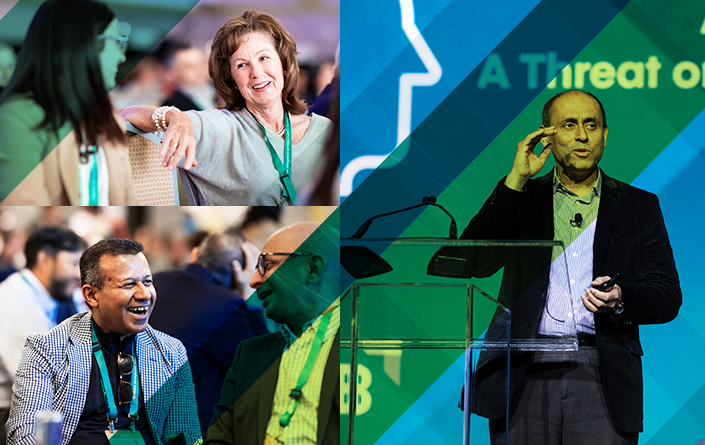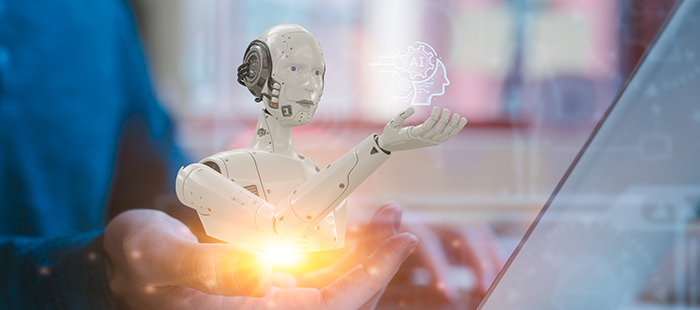Mobile Micro-Learning: Course Design for Mobile First
Transcript
Dan LeClair: [00:17] So Young, thanks for being here and talking with us about a really important and future oriented topic. You and your team at Gnowbe have been pioneers in creating solutions in mobile micro learning. Tell us about what that is.
So-Young Kang: [00:36] We talk about the future, but I actually think it's already here. [laughs] It's the idea of delivering accredited and high quality content to people from their mobile phones. Designed for their mobile, which requires micro learning in terms of bite sized contents because our attention span has gone shorter.
LeClair: [00:56] The idea is to put mobile first.
Kang: [00:59] That's right.
LeClair: [00:59] Then that requires micro.
Kang: [01:02] That's right. There's actually a very big difference between mobile first and mobile responsive. Many people assume that, because you have a website now, it's mobile responsive so we're good. We're mobile, but actually they're quite different.
[01:17] When you try to design for a modem, if you're designing for actually a small device like the mobile phone, you have to actually re imagine the content to be able to deliver it in a mobile first way so that it actually assumes the learner is walking around, is mobile, is on the go.
[01:33] The way that you would design that content would be vastly different than if you were designing for a Web, which assumes the learner was sitting down behind a big screen laptop with lots more complicated information. That's what you imagine when you create it. Of course, if you design with this device in mind, you have to reimagine the content and deliver it.
[01:53] The engagement rates and the impact of mobile first is vastly different.
LeClair: [01:57] It sounds like there are many other advantages than just the design aspect. Tell us more about some of the advantages of mobile micro learning.
Kang: [02:04] One of the fastest growing areas actually within education, and corporate learning, and adult education is mobile learning, because of the benefits. One of it is that, in terms of time savings. Instead of going through a one hour lecture on something on a video, you're able to get the key pieces and points in a few minutes a day.
[02:24] Imagine being able to access a content from your phone anytime, anywhere, any device. I could be commuting on my way to work. I could take the bus or a taxi to work. I could learn a few sessions by the time I get to the office. If I want to continue, I just switch on my laptop, and I can continue my learning. Time savings is one element flexibility.
[02:44] Accessibility is huge. When we're talking about millions, billions, of people around the world who don't even have access to great content, who'll never be able to set foot into a physical classroom, accessibility is huge. Third is in terms of learning impact and outcomes ultimately, which is what adults care about.
[03:04] There's a lot of science and research that says that, if you do bite sized reinforced learning, it actually increases your retention rate. Also, a surprising finding for us is this increased confidence level.
LeClair: [03:17] Really?
Kang: [03:18] It was actually shocking. We have a few clients who actually use Gnowbe to deliver product training, for example. What ended up happening was that, because they had the psychological accessibility of the content when they needed it in their pocket almost attached to their bodies, it actually increased their confidence levels by more than 50 percent.
LeClair: [03:37] Wow.
Kang: [03:38] If you actually think about the psychology...
LeClair: [03:40] Some people [laughs] could be more confident.
Kang: [03:42] Even students. A psychology professor did an A/B test. They had a group of students who had to sit. There was an optional sitting for the test, so they don't have to sit for the test. If they feel confident, they will sit for the test. We had Group A that didn't have Gnowbe. They just went through a face to face psychology course.
[04:00] Then you had Group B that had the psychology course with blended learning using Gnowbe. 50 percent more of these students sat for the exam than this group same content. If you think about the power of that in terms of mindsets and building confidence of your learners, it's actually pretty critical and pretty huge.
Filmed April 2018 at ICAM in Honolulu, Hawaii, USA.




